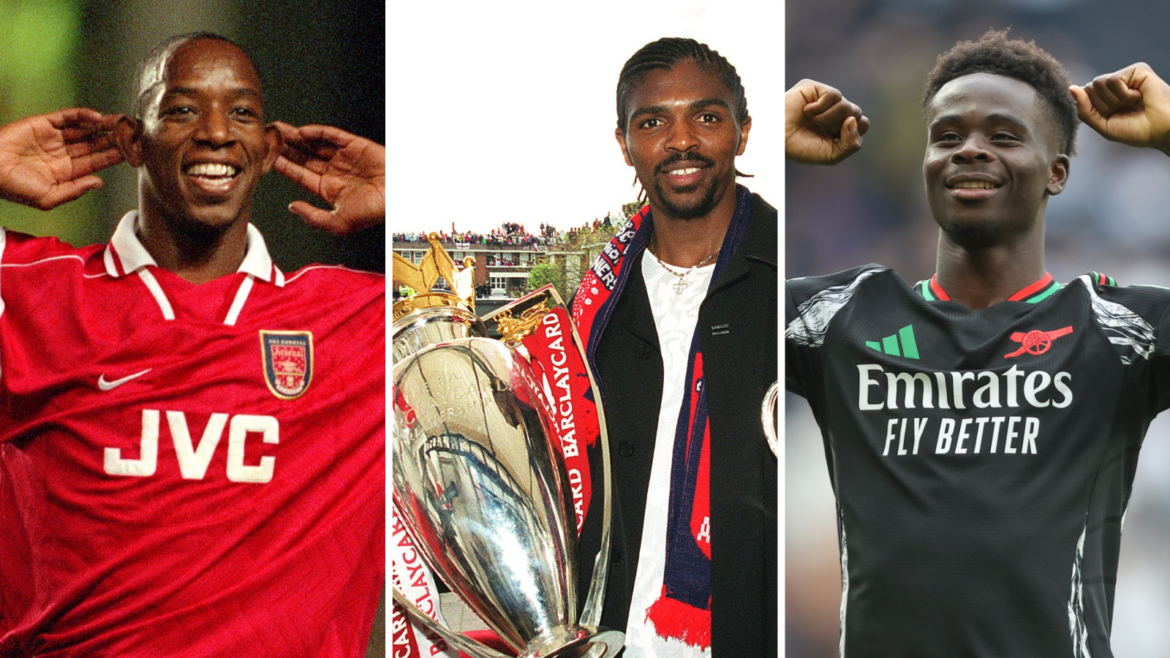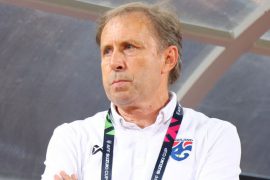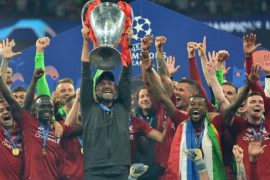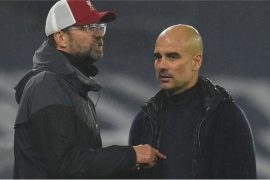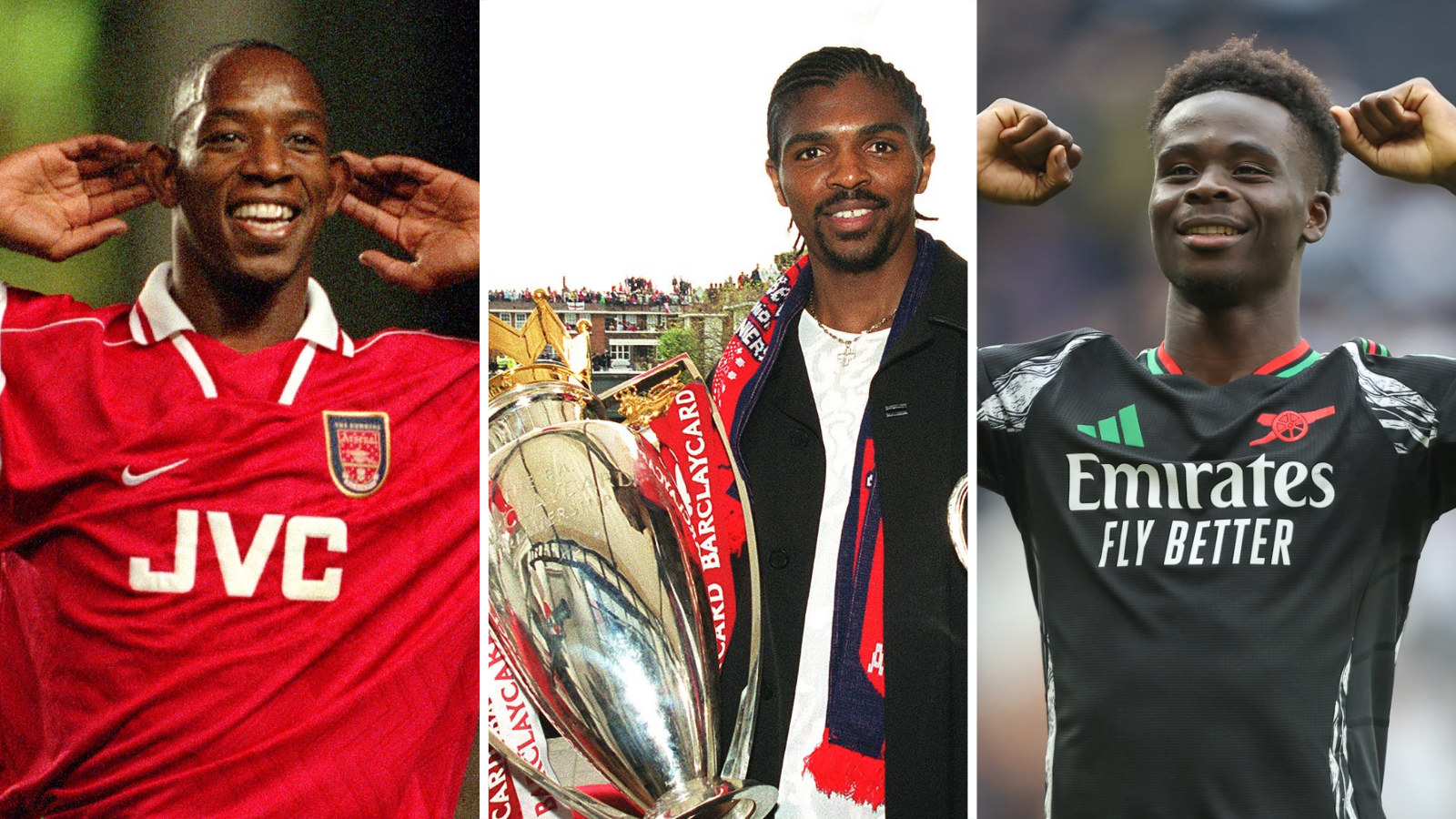
Wen Dr Clive Chijioke Nwonka waka enta one pub for Manchester to meet wit im friends on 28 September 2002, evritin bin dey normal, but e witness a moment of footballing and cultural history.
Dat day, Arsenal become di first club to name nine black players for dia Premier League starting XI.
Three of dose black players – Thierry Henry, Nwankwo Kanu and Kolo Toure – later score dat day as di Gunners win 4-1 away against Leeds United.
“Dia performance bin increase di impact of dis moment of historical and racial significance,” Dr Nwonka, who be professor for di University College London now, tell BBC Africa.
“E show say dia presence dey justified based on dia success.”
Dr Nwonka don dey explore di contribution of Arsenal footbal club to black cultural history as a co-editor of di book ‘Black Arsenal’ wey dem just publish.
Di book include testimonies and photography from dose wey feel say dem get connection wit di north London side.
“I be British-Nigerian and as I dey see black players and African players dey represented for British football, e dey important to me,” e tok.
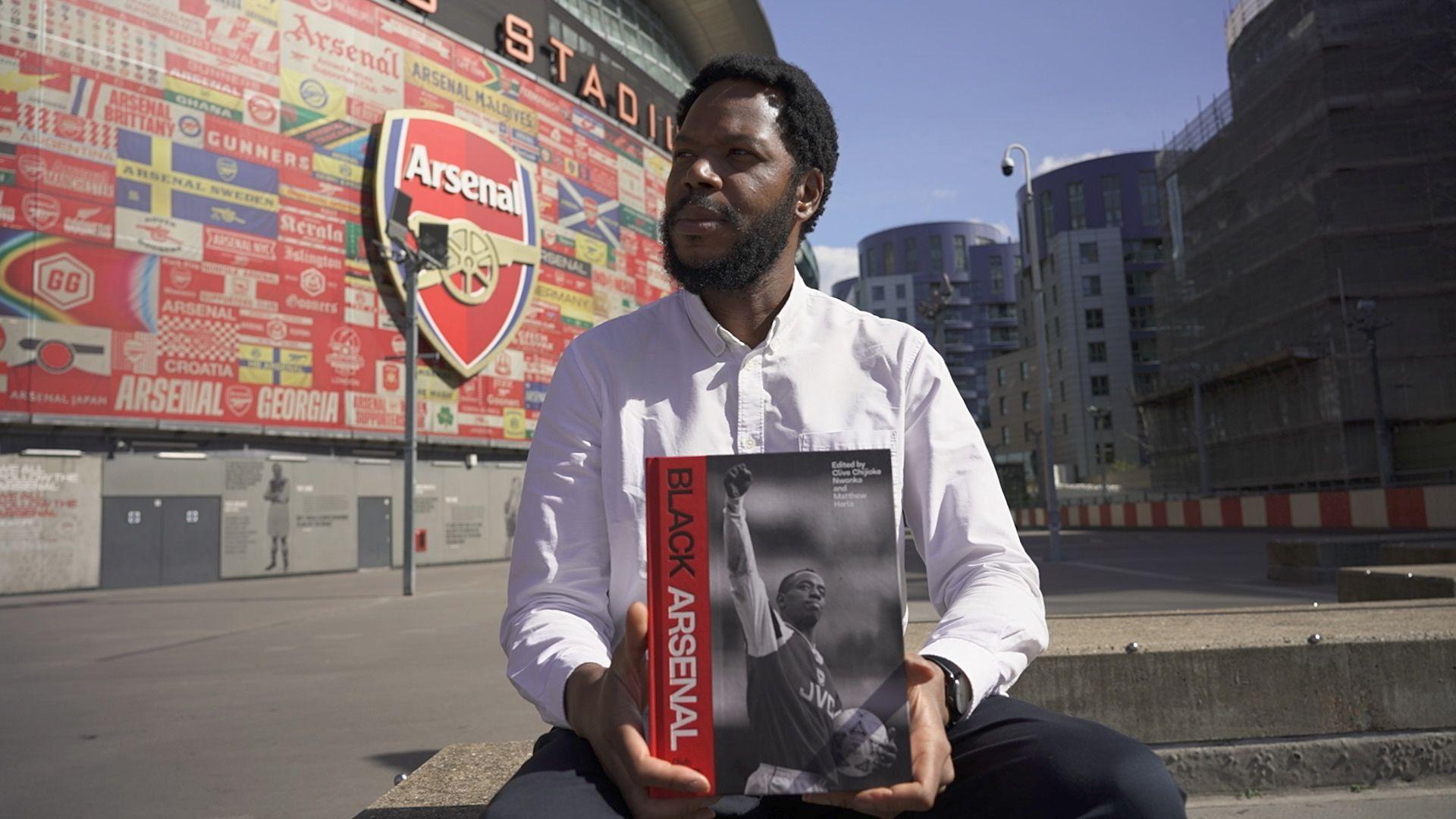
Parts of di book also look at Arsenal contribution to how plenty black players come to di Premier League and di growing attendance of black female fans for di club Emirates Stadium.
“I always feel say e get somtin veri important, under-explored, about di ways in which black pipo find connection to Arsenal,” Dr Nwonka tok.
For die-hard fans, di support for dia club dey show for almost all aspect of dia daily lives, and dis commitment dey reflected for di book.
“Wen I say Arsenal, I mean di culture of how important Arsenal dey to black pipo,” Dr Nwonka tok.
“Not di bricks and mortar of a club, but di ways wey pipo dey discuss about Arsenal for places of black cultural density – be it our workplaces, barbershops and churches.”
Wenger and Africa
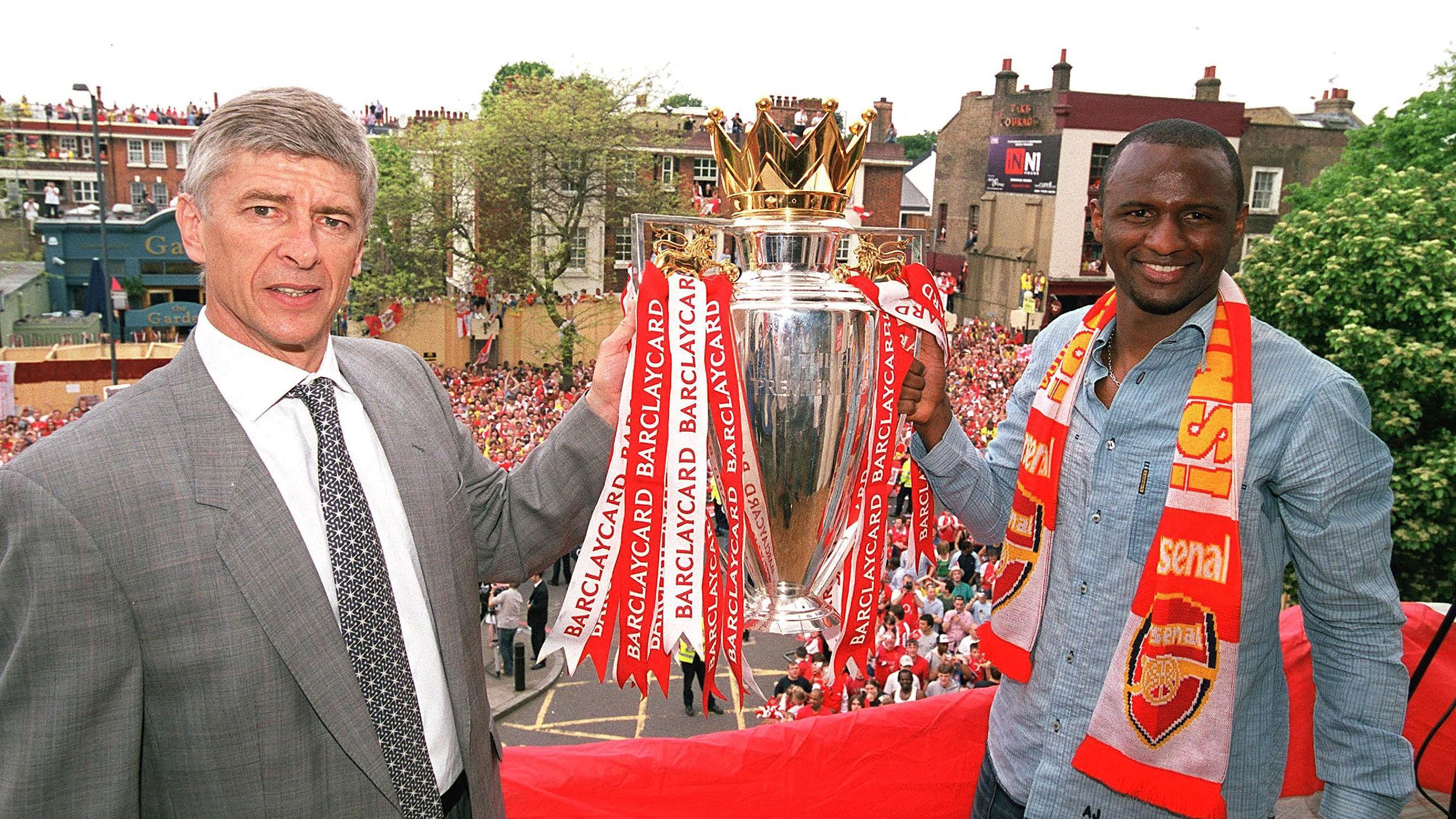
Ian Wright na di poster boy for many black Arsenal fans wey grow up for di 1990s, wit im gold tooth, charismatic persona and hunger for goals.
Many Gunners supporters no go disagree wit his foto being on di cova of ‘Black Arsenal’ but, for Dr Nwonka and oda Nigerians, e get anoda significant player.
Dem remember di Nigeria team wey beat Argentina to win di Olympic gold medal for 1996, and in particular di man wey score di winning goal for di semi-final win against Brazil – Kanu Nwankwo.
Di striker wey dem born for Imo State, Nigeria, bin join Arsenal from Italian giants Inter Milan for 1999.
“Im coming to Arsenal get particular cultural importance for me and pipo like me,” Dr Nwonka tok.
Arsene Wenger, Arsenal manager dat time, dey popular for buying French and African players, and e nurture some of di biggest names for di continent during im 22 years in charge from 1996 to 2018.
Wen Arsenal no play well, critics for British newspapers go say Wenger suppose dey sign more established players and pipo wey dey beta suited to English culture.
But di Frenchman gain huge respect for im model of management wen Arsenal bin win di title in 2003-04.
Dat triumph even shock pipo pass sake of say Wenger team no lose even one game – and nobodi don eva repeat dis achievement.
Dat team, wey pipo dey call ‘di Invincibles’, bin include Ivory Coast defender Kolo Toure and Cameroon right-back Lauren, along wit Kanu.
“Na one tin to get African players wey dey do well and dey entertaining, but winning make a difference,” Dr Nwonka tok.
Dis model of success na why some ‘new school’ African football fans dey support Arsenal London rivals Chelsea, wey dia dominance of di English game under Jose Mourinho bin feature icons such as Ivorian Didier Drogba, Ghana Michael Essien and di Nigerian John Obi Mikel.
Fighting back against racism

Despite di big success of black footballers, racism na still big issue for di pitch and beyond.
For 2021, Afta dia Euro 2020 final defeat by Italy, three England players – Bukayo Saka, Jadon Sancho and Marcus Rashford – bin face racist abuses online sake of say dem bin miss dia penalties for di shootout.
Eleven pipo bin dey arrested, and Arsenal release a statement to support Saka and im England team-mates.
“Dis kain tin no suppose continue, and di social media platforms and authorities gatz act to make sure say dis disgusting abuse wey our players dey face on daily basis stop now,” di statement tok.
But Saka don receive even more abuse, including afta Nottingham Forest bin win Arsenal last year.
Racism na still di most reported form of discrimination for all levels of English football dis season, according to statistics by anti-discrimination charity ‘Kick It Out’.
Ethnic minority players na dem dey usually be di target by online trolls and dem no dey too get sense of belonging to di nation – even if na for di kontri dem born and raise dem.
Dr Nwonka believe say some of di languages wey pipo dey use to describe black players follow dey make racism worse. Words wey e describe as “heavily racialised, reductive, negative and ignorant”.
Im observation also support recent research by two Dutch universities on racialised discourses about black and white athletes.
Di study from Utrecht University and Erasmus University for Rotterdam tok say white athletes dey often dey seen as intellectually beta and hardworking, while black athletes dey linked to physical strength and natural ability to shine for sports sake of dia physique.
Although generations of players don dey push back against old stereotypes and racist narratives, Dr Nwonka believe say a sense of respect and appreciation dey “long overdue”.
Arsenal future

Dis season, Arsenal dey celebrate dia African heritage and connection wit di continent wit dia away jersey, wit colour scheme wey match di pan-African flag.
Sierra Leone-born Foday Dumbuya na im design di jersey and di official trailer na for di kontri capital Freetown dem feem am.
“E dey veri nice to take am back to wia I come from, to look at di way children dey connect wit football, di way pipo look at football for Africa, becos football na life,” Dumbuya tok.
As someone wey grow up for London, Dr Nwonka describe Arsenal shirt as “di uniform” of di city.
E feel say e also dey like dat for di African continent.
Saka, wey im parents na Nigerians but dem born am for London, dey popular among Arsenal fans as ‘starboy’ – a slang for a young male celebrity – and e play big part for di launch of di new away kit and di oda clothing collection.
Di 23-year-old don also get more dan 230 appearances for di Gunners and e dey always speak out about fighting racism and cultural insensitivity for di game.
“Saka dey pass im race for plenti ways. E get cross-cultural appeal becos im be British and Nigerian,” Dr. Nwonka tok.
As such, di baby-faced winger don cement imsef as a Premier League and international regular, and im na inspiration for di next generation of footballers and supporters regardless of dia background.
Im na di latest for Arsenal growing history of black icons.

